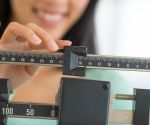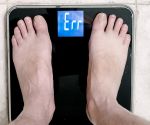Advertisement
For all of us, the best time to weigh ourselves is in the morning. That's the time you'll find your true weight. Always use a calibrated, accurate scale, and do it first thing when you wake up. I like to recommend weighing in one day a week -- the same day each week. Not much happens day to day, so checking up once a week will show your true progress. Make sure your scale is on a firm and flat floor. If you do this, you'll see more changes and better accuracy than if you weigh yourself every day. When you weigh every day, you tend not to see the results you expect and you may become discouraged. Worst of all, if you weigh yourself multiple times a day, your weight goes up. Sounds obvious, but you'd be amazed how many people weigh themselves throughout the day and get upset that their weight changes as they consume more. Fluid and food increase the numbers artificially.

More About this Book
Eating Free: The Carb-Friendly Way to Lose Inches, Embrace Your Hunger, and Keep Weight Off for Good
Eating Free reveals why the prevailing wisdom on weight loss--low-calorie, no carbs, high-intensity exercise--sharply clashes with the facts of human biology and human nature, setting dieters up for...
Whether you are trying to gain or lose weight, the most important thing to remember about weighing yourself is to do it at the same time of the day every time. It does not matter what time, just be consistent with the time.
Continue Learning about Weight Guidelines
Important: This content reflects information from various individuals and organizations and may offer alternative or opposing points of view. It should not be used for medical advice, diagnosis or treatment. As always, you should consult with your healthcare provider about your specific health needs.





